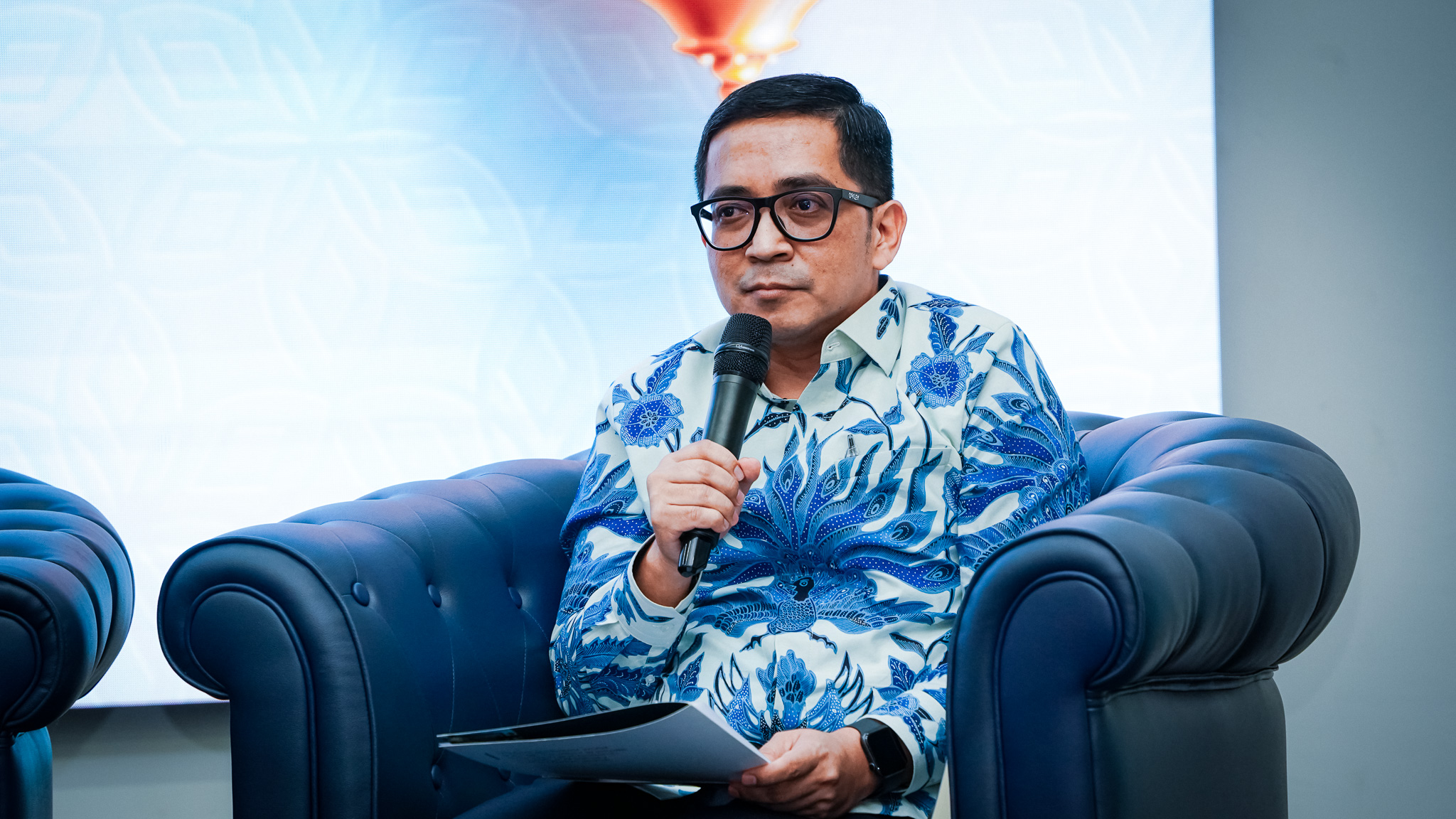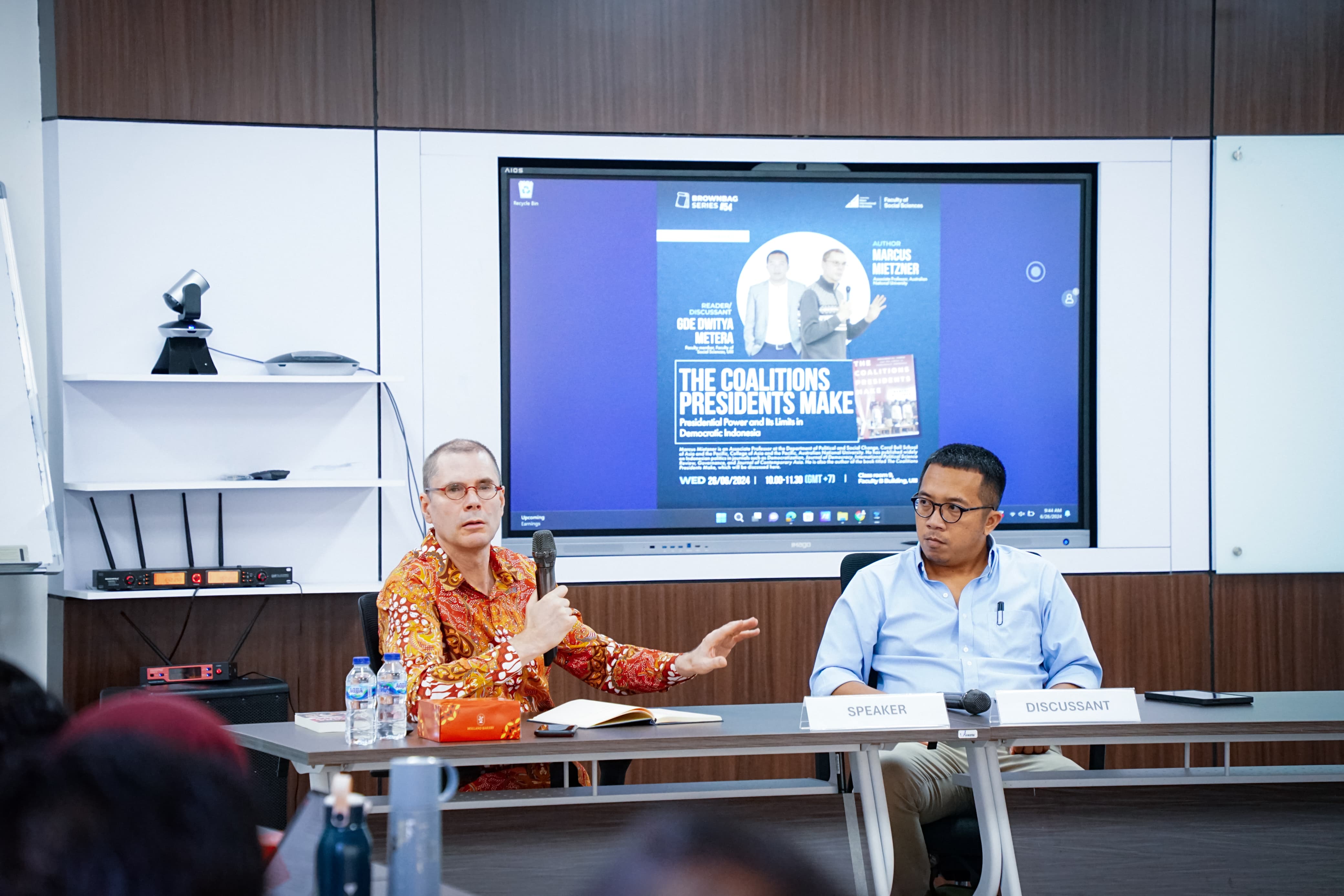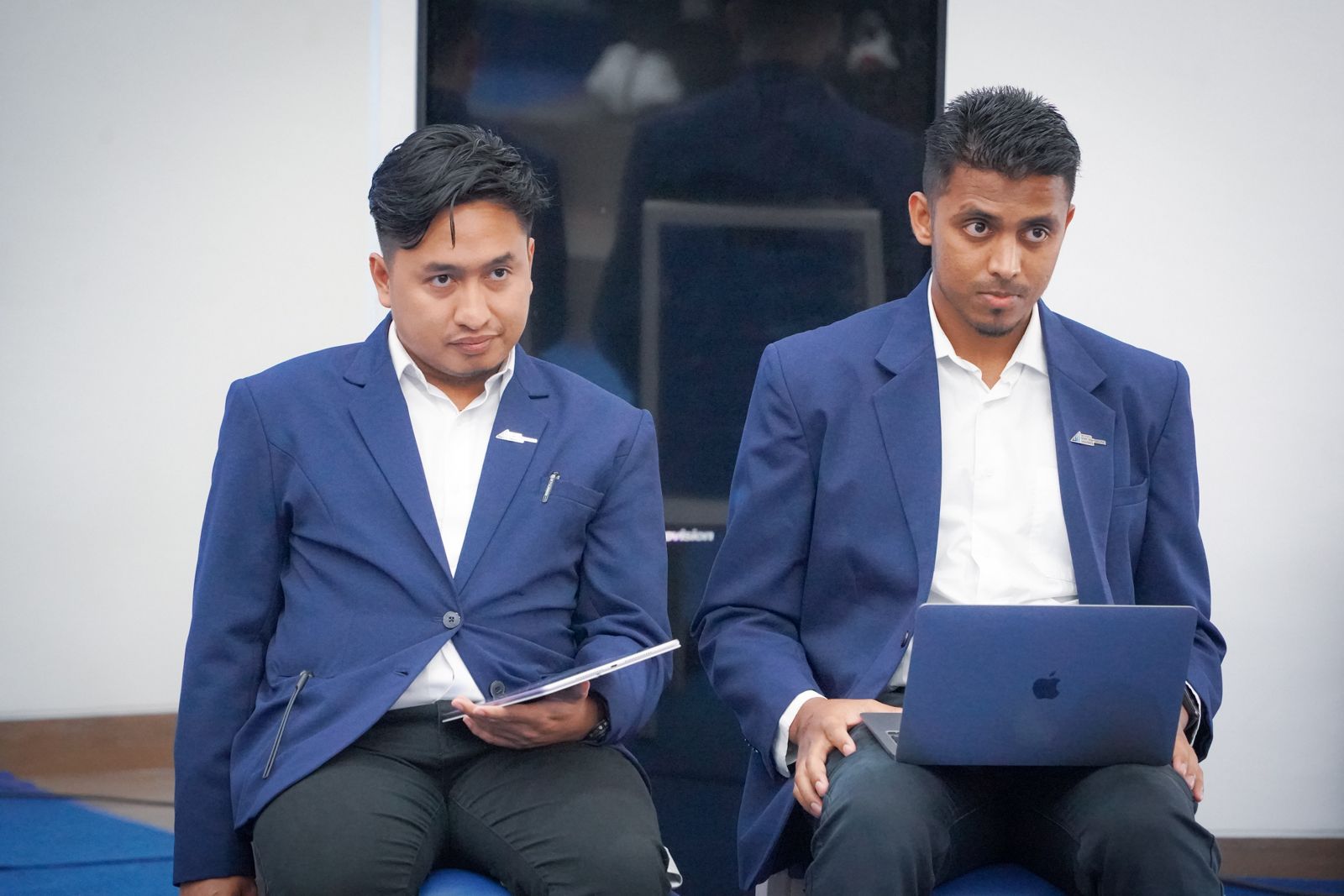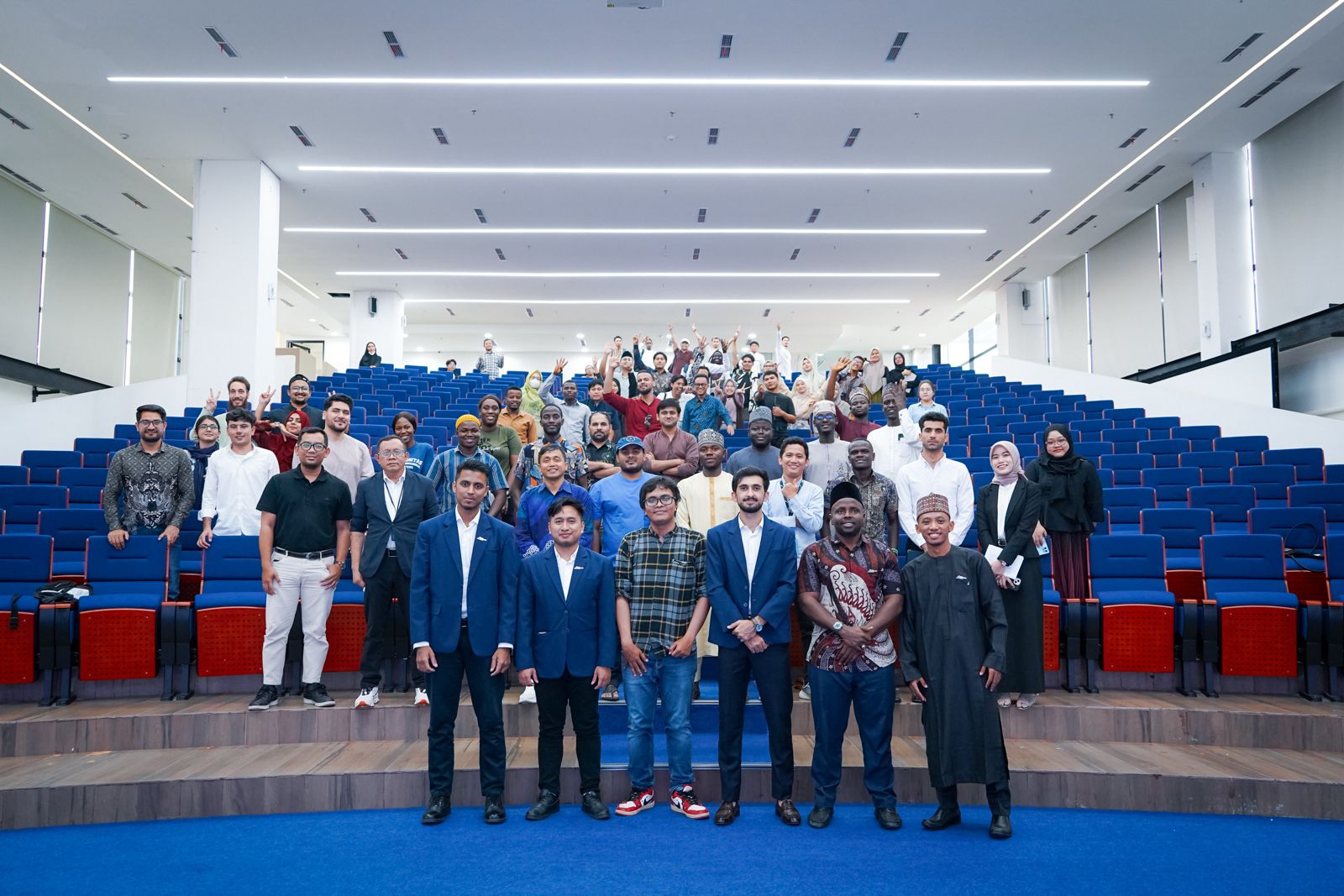What to Expect from Indonesia Presidential Election 2024: UIII Expert’s Insights
June 08, 2023Contributor: Magello Fenis | Editor: Supriyono

KATADATA Indonesia, a prominent media company and research institution based in Jakarta, organized an online forum entitled, “Indonesia Presidential Election 2024: The Constellation and What to Expect”. The guest speaker for the said discussion was Philips J. Vermonte, Ph.D., the Dean of the Faculty of Social Sciences of UIII.
Since Indonesia’s political tension is heating up, the discussion aims to shed a light on the trajectory of leading prospective presidential and vice-presidential candidates as well as the possibilities of coalitions of political parties.
According to Dean Vermonte, "kingmakers," which he refers to as elite individuals or groups, still hold significant influence and power to determine the outcome of the upcoming 2024 Indonesian general elections. These elites have the ability to support specific candidates and form alliances, resulting in a strategic advantage.
It is worth noting that the incumbent President Joko Widodo still has the capacity to influence the direction of the election results. His endorsement could be advantageous for any candidate, as Jokowi's satisfactory rating remains high at around 80%. A vote in favor of a candidate endorsed by Widodo signifies a commitment to upholding the narrative of continuity established by the current administration.
While the list of potential presidential candidates is still far from final Anies Baswedan, Ganjar Pranowo, Prabowo Subianto and Airlangga Hartarto are among the leading candidates to run for the highest office in the world's third-largest democracy, with approximately 200 million eligible voters. Moreover, we can anticipate unexpected partnerships between Prabowo Subianto and Anies Baswedan, as well as other team-ups, which could potentially alter the dynamics of the electoral results next year.
In light of these circumstances, this reflects the reality of Indonesian politics. Dean Vermonte further explained that Indonesian politics is not black and white. Moreover, unsuccessful political concessions do not automatically result in cutting ties between political actors, such as potential presidential candidate Prabowo Subianto and Partai Demokrasi Indonesia (PDI-P) Chairperson Megawati Sukarnoputri. This implies that there remains a possibility for them to collaborate and work together in the future.
Especially in the legislative elections, it is anticipated that PDI-P, under the leadership of Megawati, would secure the majority. A PDI-P endorsement is also huge, given that the party nominates Central Java Governor Ganjar for president which solidified his polling lead in a recent survey.
Indonesia, with its large size and substantial voting population, conducts one of the most expensive elections in the world. It is crucial to recognize that upholding a democracy comes with significant costs, and corruption at various levels, from local to national, is a downside that accompanies it, as emphasized by Dean Vermonte.
Amid the differences in political rhetoric and strategies employed by politicians and political parties, Dean Vermonte also suspects that their responses would be similar to the current administration when it comes to implementing policies. This is because many of the socio-political issues faced by the government and the people, such as post-pandemic challenges, climate change and hopes of garnering support from the business sector, remain the same.
In a positive tone, Dean Vermonte says, "While there are never-ending political developments in the country, Indonesia is fortunate that during its critical moments in the Reformasi era, political leaders tended to shake hands rather than cling to power and resort to bloodshed."
- UIII Extends Application Deadline for 2025 International Admissions
- What Does Eid al-Fitr Mean for the UIII Academic Community?
- UIII PhD Scholar Ararat Kostanian Delivers Lecture at Armenia's Yerevan State University
- Swedish Ambassador to Indonesia Applauds UIII’s Vision, Explores Future Collaboration
- Depok Mayor Supports UIII as the Green Lung of Depok and Beyond
- Depok Mayor Pledges to Build Performance Hall at UIII
- New Parking Facility Launched, Part of UIII-Sentra Medika Hospital Partnership
- Yogyakarta’s UII Won 1st FisFastFest’s Clash of Campuses
- Vice Minister of Religious Affairs Praises UIII as a Global Hub for Islamic Education
- Hurray!! UIII Wins Football Championship


